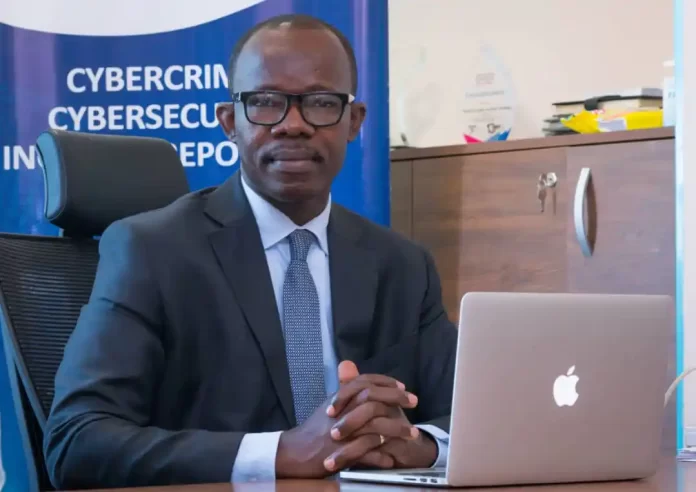During the first half of 2023, Ghana experienced a significant financial setback due to cyber fraud activities, resulting in direct financial losses totaling $4.32 million (equivalent to GH¢49.5 million).
This revelation was made by Albert Antwi-Boasiako, the Director-General of the Cyber Security Authority (CSA), during the Accra media launch for the National Cybersecurity Awareness Month (NSCAM).
NSCAM serves as an initiative aimed at raising awareness about the importance of digital security and empowering individuals to safeguard their data in an era marked by continually evolving digital trends.
Ghana faces high cybercrime reporting and growing internet use
Antwi-Boasiako emphasized that Ghana’s commitment to fostering a culture of digital safety is rooted in its cybersecurity efforts and societal considerations, stemming from the cybersecurity Capacity Maturity Model (CMM) commissioned by the Ministry of Communications and Digitalization in January 2018.
He further clarified that the reported financial losses due to cyber fraud activities represent only a fraction of the cases reported to government agencies.
Over the period from October 2019 to July 2023, the CSA received a staggering 41,285 contacts from the public, reporting complaints related to cybercrime and associated activities.
Among the reported cybercrimes, identity theft, online extortion, romance fraud, and shopping fraud collectively accounted for 41% of the total cases.
Antwi-Boasiako also highlighted global internet access statistics, revealing that more than 62% (approximately 4.95 billion people) of the world’s population now has internet access.
In Ghana, internet penetration has witnessed remarkable growth, surging from 2.31 million users in 2012 to 17 million users in 2022, constituting 53% of the country’s population. Notably, a significant portion of this user base comprises the younger generation.
Recognizing the significance of cybersecurity education, Antwi-Boasiako stressed the need to intensify efforts to educate young individuals about cybersecurity matters, as they represent a substantial portion of Ghana’s internet users.
This educational initiative is vital to combat cyber threats and protect individuals, businesses, and the nation’s digital infrastructure from harm.

